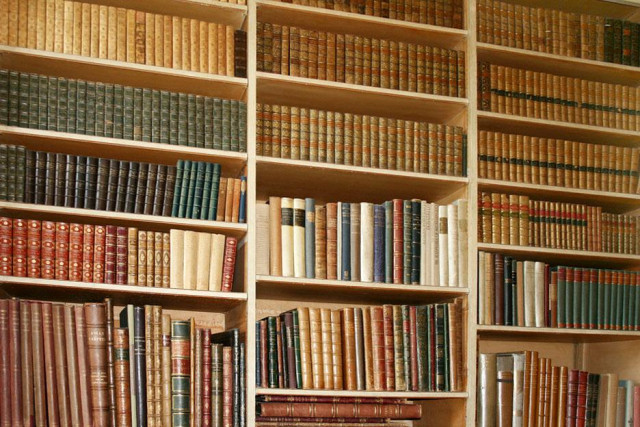Libraries fail to promote literary engagement
Outdated books, lack of facilities have contributed to the dying culture of reading

It is said that libraries and their collections of books anchor a nation to their past and connect them to their future. After all, reflecting on yesterday's mistakes is the only way to prepare for the uncertainty that tomorrow brings.
Yet despite the critical need for Pakistan's ailing social fabric and economy to ponder over the course of its history and pave the way for a better tomorrow, neither knowledge production nor libraries have been given much attention by the government.
According to sources of the Express Tribune, out of 41 districts in Punjab, just 11 libraries are scattered across seven districts including Lahore, Sheikhupura, Okara, Sahiwal, Jhang, Toba Tek Singh and Bahawalpur alongside 100 e-libraries.
Around 50,000 people visit these 11 libraries across Punjab on a daily basis, of which 40 percent read newspapers, 20 percent seek literary reference, 15 percent come for exam preparation, 15 per cent hope to read books while 10 percent come for free internet. Similarly, 1,000 people visit the largest, Quaid-e-Azam Library in Lahore every day.
One such visitor was Hassan Jamil, who has been a member of the Quaid-e-Azam Library since the past 15 years but visits the library only occasionally. "I have a passion for reading books.
However, in recent times, I have observed that the culture of reading books at libraries has died out. Usually, people come to the library only for reference books or for their CSS or PMS preparation. Therefore, the government needs to allocate a separate corner in the library for research," assessed Jamil.
Likewise, Ghulam Haider, another visitor, claimed that there were very few chairs for the members or visitors to sit. "Usually, people who come to the library are only attracted by the free Wi-Fi facility for the members. In order to improve the literary environment, there is a need to promote digitalization in the library," opined Haider.
Concurring with Haider, Salman Abid, a public policy advisor and educationist, also felt that digital libraries were the need of the hour. "When we talk about digital libraries, we refer to the provision of all modern technological facilities that allow people to access reading material online and connect with the world. Unfortunately, looking at the budget for education, it is safe to say that education has rarely been a priority for the rulers in Pakistan," claimed Abid.
Abid further opined that despite the presence of municipal committees, libraries across the province were in a state of neglect. "Either there are no libraries or the ones that are available are functioning without an adequate budget. Given the measly budget allocation, new books and facilities are not provided since the entire budget is used to pay off salaries to employees," noted Abid.
On the other hand, Director General Punjab Public Libraries Kashif Manzoor claimed that the Punjab government was building new libraries in Lahore and Narang Mandi Sheikhupura, while Lahore's Model Town Library was also being upgraded.
"At present there are more than 450,000 books in 11 libraries, which are increased by 30 per cent every year, while the budget for these books is kept at 10 per cent of the total budget. Two new halls are being built at the Quaid-e-Azam Library where there will be separate arrangements for men and women.
The budget of nine libraries under the S&GAD department is Rs200 to 250 million per year. Work is also underway on an e-library project. With the cooperation of the Walled City of Lahore, the two libraries of Lahore, Quaid-e-Azam and Punjab Public Library will soon be connected," said Manzoor.



















COMMENTS
Comments are moderated and generally will be posted if they are on-topic and not abusive.
For more information, please see our Comments FAQ